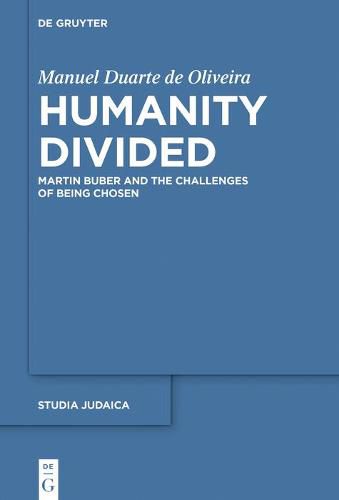Readings Newsletter
Become a Readings Member to make your shopping experience even easier.
Sign in or sign up for free!
You’re not far away from qualifying for FREE standard shipping within Australia
You’ve qualified for FREE standard shipping within Australia
The cart is loading…






This title is printed to order. This book may have been self-published. If so, we cannot guarantee the quality of the content. In the main most books will have gone through the editing process however some may not. We therefore suggest that you be aware of this before ordering this book. If in doubt check either the author or publisher’s details as we are unable to accept any returns unless they are faulty. Please contact us if you have any questions.
With exacting scholarship and fecund analysis, Manuel Oliveira probes through the lens of Martin Buber (1878-1965) the theological and political ambiguities of Israel’s divine election. These ambiguities became especially pronounced with the emergence of Zionism. Wary, indeed, alarmed by the tendency of some of his fellow Zionists to conflate divine chosenness with nationalism, Buber sought to secure the theological significance of election by both steering Zionism from hypertrophic nationalism and by a sustained program to revalorize what he called alternately Hebrew Humanism.
As Oliveira demonstrates, Buber viewed the idea of election teleologically, espousing a universal mission of Israel, which effectively calls upon Zionism to align its political and cultural project to universal objectives. Thus, in addressing a Zionist congress, he rhetorically asked, What then is this spirit of Israel of which you are speaking? It is the spirit of fulfillment. Fulfillment of what? Fulfillment of the simple truth that man has been created for a purpose (…) Our purpose is the upbuilding of peace (…) And that is its spirit, the spirit of Israel (…) the people of Israel was charged to lead the way to righteousness and justice.
$9.00 standard shipping within Australia
FREE standard shipping within Australia for orders over $100.00
Express & International shipping calculated at checkout
This title is printed to order. This book may have been self-published. If so, we cannot guarantee the quality of the content. In the main most books will have gone through the editing process however some may not. We therefore suggest that you be aware of this before ordering this book. If in doubt check either the author or publisher’s details as we are unable to accept any returns unless they are faulty. Please contact us if you have any questions.
With exacting scholarship and fecund analysis, Manuel Oliveira probes through the lens of Martin Buber (1878-1965) the theological and political ambiguities of Israel’s divine election. These ambiguities became especially pronounced with the emergence of Zionism. Wary, indeed, alarmed by the tendency of some of his fellow Zionists to conflate divine chosenness with nationalism, Buber sought to secure the theological significance of election by both steering Zionism from hypertrophic nationalism and by a sustained program to revalorize what he called alternately Hebrew Humanism.
As Oliveira demonstrates, Buber viewed the idea of election teleologically, espousing a universal mission of Israel, which effectively calls upon Zionism to align its political and cultural project to universal objectives. Thus, in addressing a Zionist congress, he rhetorically asked, What then is this spirit of Israel of which you are speaking? It is the spirit of fulfillment. Fulfillment of what? Fulfillment of the simple truth that man has been created for a purpose (…) Our purpose is the upbuilding of peace (…) And that is its spirit, the spirit of Israel (…) the people of Israel was charged to lead the way to righteousness and justice.